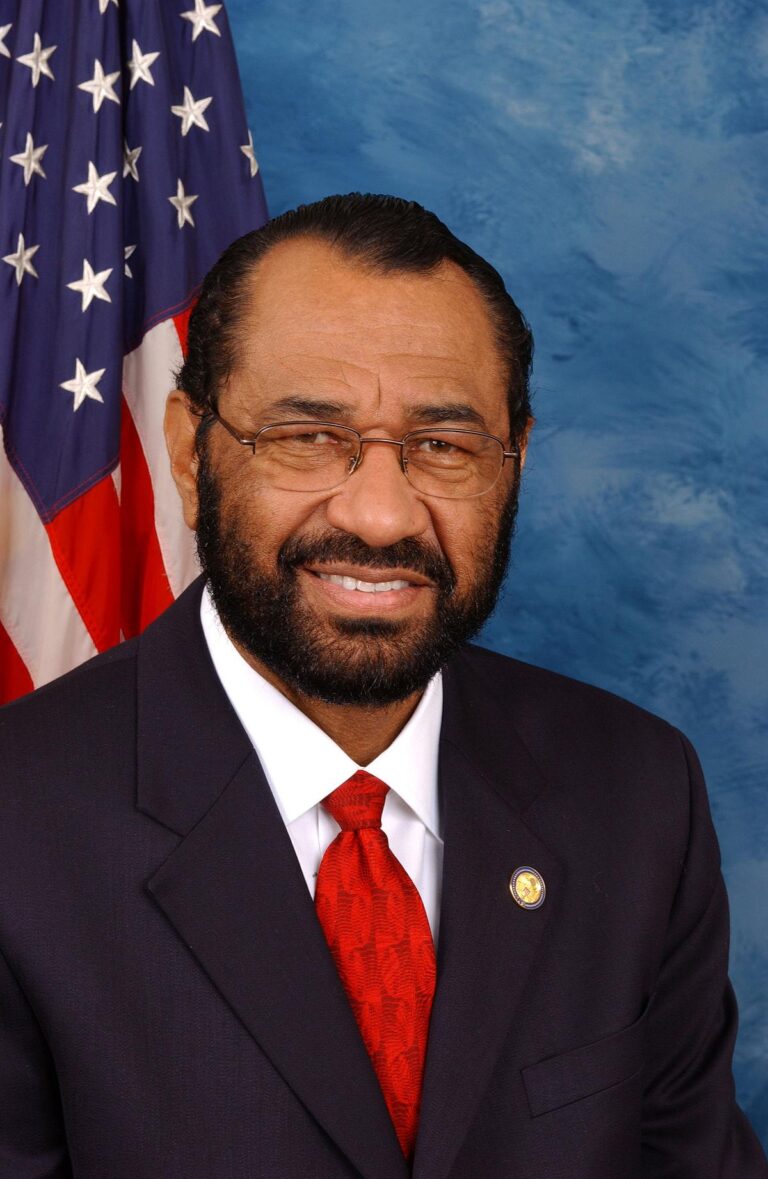Houston Congressman Al Green Reflects on His Controversial Interruption of TrumpŌĆÖs Congressional Address
Al GreenŌĆÖs Defiant Stand: A Moral Protest Against Presidential Rhetoric
HoustonŌĆÖs Democratic Representative Al Green has openly discussed his contentious choice to interrupt then-President Donald Trump during a congressional speech, boldly declaring, ŌĆ£I did not obey.ŌĆØ Far from a spontaneous outburst, GreenŌĆÖs interruption was a calculated act rooted in his conviction to confront what he perceived as dangerous and misleading statements. In an exclusive interview with the Houston Chronicle, Green framed his actions as a moral responsibility to challenge falsehoods and uphold democratic principles, even at the expense of breaking traditional congressional protocol.
Green outlined several foundational reasons behind his decision to disrupt the address:
- Upholding Democratic Integrity: He viewed his intervention as essential to safeguarding the credibility of American democratic institutions.
- Countering False Narratives: Green felt compelled to directly confront misinformation presented in a formal governmental setting.
- Fulfilling Civic Responsibility: His interruption symbolized a broader commitment to resist divisive political rhetoric and advocate for justice.
| Motivation | GreenŌĆÖs Perspective | Resulting Impact |
|---|---|---|
| Ethical Duty | Speak truth to authority | National media spotlight |
| Political Statement | Challenge deceptive claims | Intensified partisan discourse |
| Public Accountability | Defend democratic values | Mixed public and political reactions |
Examining the Broader Political and Societal Effects of GreenŌĆÖs Protest
GreenŌĆÖs unprecedented interruption ignited a nationwide conversation about the boundaries of dissent within political institutions. Advocates hailed his actions as a courageous defense against rhetoric they deemed harmful to social cohesion and democratic norms. Conversely, detractors criticized the breach of decorum, warning that such disruptions could erode respect for legislative processes and civil discourse. This incident has become a focal point for debates on free speech limits, protest etiquette in government settings, and the evolving role of elected officials as both policymakers and activists.
Beyond politics, the episode highlights ongoing societal tensions related to race, governance, and representation. It raises critical questions about how marginalized groups assert their voices in traditionally conservative arenas. The following table summarizes key political and social ramifications observed since the event:
| Dimension | Political Consequences | Social Outcomes |
|---|---|---|
| Public Sentiment | Deep polarization with extensive media scrutiny | Increased focus on racial equity and justice |
| Legislative Reaction | Proposals for stricter conduct regulations | Heightened discourse on activismŌĆÖs place in governance |
| Long-Term Impact | Potential redefinition of protest norms in Congress | Empowerment and visibility for underrepresented communities |
Responses from Political Figures and the Public Sphere
Following the dramatic interruption, political leaders from various affiliations voiced strong opinions. Al Green stood by his decision, emphasizing the primacy of democratic accountability over procedural formality. His statement, ŌĆ£I did not obey,ŌĆØ underscored his belief that elected officials must sometimes challenge authority to protect democratic ideals.
The public reaction mirrored the political divide, with social media platforms becoming battlegrounds for debate. Key perspectives included:
- Supporters: Viewed GreenŌĆÖs act as a vital resistance against threats to democracy and social justice.
- Opponents: Criticized the disruption as disrespectful to institutional norms and called for more civil discourse.
- Moderates: Advocated for dialogue and reconciliation to bridge the growing political chasm.
| Political Figure | Reaction | Core Message |
|---|---|---|
| Al Green (D-TX) | Justified his protest | ŌĆ£Protecting democracy requires courage, even if it breaks protocol.ŌĆØ |
| Republican Peer | Condemned the interruption | ŌĆ£Respect for institutional procedures is essential.ŌĆØ |
| Political Commentator | Called for constructive engagement | ŌĆ£Dialogue is key to overcoming division.ŌĆØ |
Strategies for Managing Disruptions and Preserving Order in Congress
Congressional sessions are vital arenas for democratic debate, yet disruptions can impede legislative effectiveness and decorum. To balance the right to dissent with the need for orderly proceedings, clear guidelines and protocols are essential. Establishing structured opportunities for expression and clarifying consequences for interruptions can help maintain respect while allowing robust debate.
Recommended approaches include:
- Introducing a formal warning system prior to disciplinary action
- Granting the Speaker transparent authority to mediate conflicts
- Scheduling dedicated debates for contentious issues
- Fostering a culture of mutual respect across party lines
| Measure | Objective | Expected Result |
|---|---|---|
| Formal Warning | Notify members of potential disciplinary steps | Decrease in sudden interruptions |
| Speaker Mediation | Impartial conflict resolution | Smoother legislative discussions |
| Scheduled Debates | Provide structured platforms for dissent | Improved focus and productivity |
Looking Ahead: The Lasting Legacy of GreenŌĆÖs Congressional Protest
In the aftermath of his unexpected interruption of former President TrumpŌĆÖs speech, Representative Al Green remains steadfast in his conviction that confronting harmful rhetoric is a necessary act of leadership. As political tensions continue to escalate nationwide, GreenŌĆÖs defiance highlights the deep divisions and impassioned debates shaping the current congressional landscape. This episode contributes a significant chapter to ongoing discussions about the balance between free expression, institutional respect, and the evolving nature of political dissent in AmericaŌĆÖs democracy.

